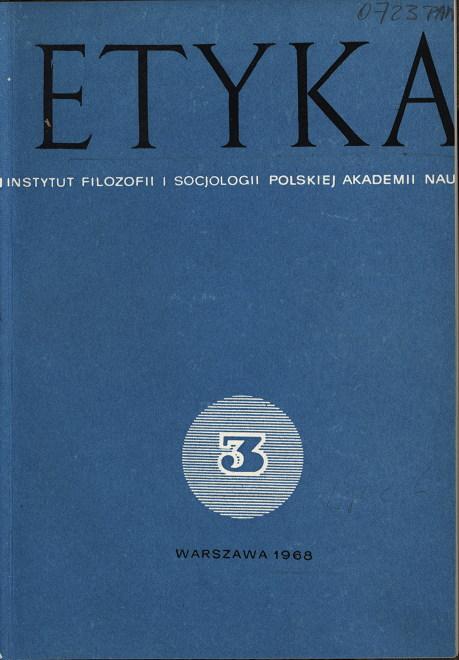Zasady wymiaru sprawiedliwości w świetle badań empirycznych
Słowa kluczowe:
prawo karne, przestępstwo, kara śmierciAbstrakt
The writer concentrates upon some selected problems of the theoretical analysis of the conception of “justice” and upon practical applications of the idea of justice, above all in penal law. After having quoted some more interesting views and discussions on this conception (e.g. those of Aristotle, Hume, and K. Ajdukiewicz), the writer pays special attention to the conception of universal formula of justice, postulated by Ch. Perelman. Such a formal justice he defines as a principle of action, according to which persons belonging to the same category should be equally treated. However, this conception eliminates neither arbitrarily nor dependence of justice from the acknowledged world-outlook and hierarchy of values. Being an abstract and general conception, it requests a concretisation which consists in choosing one essential category based on an arbitrary selection of essential characteristics.
Pobrania
Opublikowane
Numer
Dział
Licencja
Prace publikowane w czasopiśmie ETYKA udostępniane są na podstawie licencji Creative Commons Attribution No Derivatives 4.0 International (CC BY-ND), tj. uznanie autorstwa-Bez utworów zależnych. Oznacza to, że Autorki i Autorzy zachowują autorskie prawa majątkowe do utworów i wyrażają zgodę, aby ich prace były zgodnie z prawem ponownie wykorzystywane do dowolnych celów, także komercyjnych, za wyjątkiem tworzenia utworów zależnych (dzieł pochodnych), bez konieczności uzyskania uprzedniej zgody ze Autora lub wydawcy. Artykuły mogą być pobierane, drukowane, powielane i rozpowszechniane z zastrzeżeniem konieczności poprawnego oznaczenia autorstwa oraz oryginalnego miejsca publikacji. Autorzy zachowują prawa autorskie do wspomnianych utworów bez innych ograniczeń.



